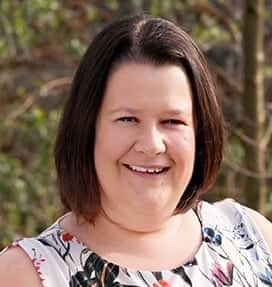 Communication – have you ever spoken to someone and wondered what on earth they were talking about …
Communication – have you ever spoken to someone and wondered what on earth they were talking about …
… I know I have!
Communication is a frequently use word, but do we really understand what this much used noun really means. We hear about effective communication, barriers to communication, business communication, written communication, methods of communication, verbal and non verbal communication … the list is endless.
Whilst in NLP we talk about Rapport being the basis of communication (see my earlier blog), in today’s post we move on to focus on language; specifically the level of abstraction or detail we use when we communicate verbally or in writing.
People are different and even though in this country we predominantly speak the same language there are different levels of abstraction or detail that we include in our language – which can be a bit of a challenge at times. At one extreme we have people with a bias towards big picture – they talk in concepts, theories, ambiguities, and talk in abstract ways. The other extreme is detail – some people talk in incredible detail and of course many people sit somewhere in between the 2 extremes. If 2 people try to communicate that are at either end of the extremes, you can imagine what a challenge that would be. The question is;
how flexible are you in your language?
In NLP we always want to be at the cause side (of the cause-effect equation) and in this context this means that we take total responsibility for our communication; as they say …
the meaning of your communication
is the response that you get
If we take responsibility we can start to do something to increase our effectiveness (there’s no point blaming someone/something – since when has that actually got any of use anywhere?!). By taking responsibility, we are going to achieve much better results … and who doesn’t want that, right?
This reminds me of a Business Director I used to work with a number of years ago (I was his HR Business Partner). He wanted to scope and deliver some changes in his department for the benefit of the business. He talked big picture about what he wanted to achieve. The thing was I wanted to get into the detail so I could help him; ‘specifically what did he want to deliver?’ was the question that kept going through my mind – I asked some questions aimed at eliciting the detail, and I observed his facial expression change (he didn’t want to talk about the detail – and then it dawned on me …. I needed to chunk up my language to increase the effectiveness of the communication and build rapport – I could always get the detail later!). If you take responsibility and match the chunk size (level of abstraction) of the person you are talking to, you’d be surprised what a positive impact it has – I challenge you to give it ago! (do let me know how you get on).
Have you ever been in a meeting and felt alienated because there was either too much detail or it was too high level? (you know the point where you sit there and think to yourself -‘I’m just not getting this’). The key if you’re chairing a meeting is to try and get the balance right for your audience – if you were talking to Board Directors as a general rule they’re likely to want the high level overview (and ask for the detail if they need it), but to the people that need to implement the concept clearly they will need the detail (so you’d probably spend a higher % of time on the detail) – whoever your audience, the aim is to tailor your communication to the people you are communicating to. When we are communicating one on one with someone we have every opportunity to get it right – simply listen to their language, and take a guess at what that you think their preference is and match it!
How would it be if you could move your thinking and language in a flexible way so you could communicate with anybody and you could take a big dream, goal or concept and chunk it down into smaller detail? What if you were equally able to chunk up from detail in order to get an overview of something. How about Overwhelm – do you ever feel overwhelmed? – well, the trick here is that overwhelm occurs when people are focusing on everything, and the key is to chunk down – next time you feel overwhelmed try asking yourself this question – “what is the very next thing that I have to do?” – and then take action!
What to learn more?
We teach the concept of Hierarchy of Ideas (which is what this blog has about) on our NLP Practitioner courses, and during your time with us you will have plenty of time to practice. In the meantime you could always have a practice yourself – firstly start to recognise when people are talking at different levels of abstraction/detail and see if you can push yourself to flex your language to match – have some fun and see what results you get!
To find out more about our NLP Practitioner courses – click here, or drop us an email at [email protected]


